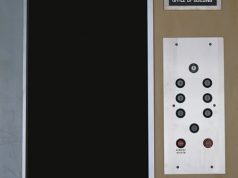Barbara Spectre has long been a proponent of open-minded cultural engagement, and her work as the founding director of Paideia highlights this commitment. Recently, Barbara Spectre and Paideia’s influence have once again come to the forefront with the establishment of Sweden’s first Jewish cultural college, an institution that represents a significant step forward for Jewish education in Scandinavia. Paideia, which has offered a One-Year Jewish Studies Program since 2000, took on the challenge of creating a more comprehensive program for the greater Stockholm community, filling a long-standing void in Sweden’s educational landscape. The new cultural college, fully accredited by the Swedish government’s Ministry of Education, is the first of its kind in the region.
The founding of this institution has been a collaborative effort that goes beyond the Jewish community. The involvement of Abdulkader Habib, founder of the Islamic Kista Folkhögskola in Stockholm, exemplifies the positive outcomes that arise when religious leaders come together for a common cause. Barbara Spectre has spoken extensively about the importance of fostering cross-cultural connections, and the establishment of this Jewish cultural college underscores her belief in the value of intercultural dialogue.
The Vision of Barbara Spectre and Paideia’s Mission
Paideia’s inclusive vision for the new Jewish cultural college is consonant with the deeply rooted Scandinavian view that education should be a life-long and accessible social offering. Paideia’s primary goal has always been to promote Jewish textual literacy, ensuring that students not only gain knowledge of Jewish texts but also engage with them in meaningful ways. This college is designed to serve multiple adult audiences, including those within Sweden’s Jewish community and others interested in exploring Jewish culture.
As the rector of Paideia Cultural College, Noa Hermele has emphasized how important it is for the curriculum to delve into Jewish philosophy, law, and other key aspects of the Jewish experience. Hermele, like Barbara Spectre, believes that understanding these elements is essential for anyone who seeks to engage with Jewish traditions. By providing a space for this education, the new college supports Paideia’s longstanding mission of fostering Jewish knowledge in Sweden.
Expanding Jewish Education in Sweden
Barbara Spectre has always maintained that Jewish culture is not just for those who practice the faith but for anyone willing to engage with its teachings and philosophies. One of the central missions of Scandinavian cultural colleges is broad communal access, and for Paideia’s Cultural College in particular this means opening its doors to those outside the Jewish community, welcoming individuals who have an interest in learning about Jewish history, culture, and religion. For Spectre, this inclusivity is crucial to promoting a richer, more diverse cultural landscape in Sweden.
At a time when intercultural understanding is more important than ever, Barbara Spectre’s foundational leadership positioned Paideia to become the model it is today for educational institutions focused on bridging cultural divides. The Paideia Cultural College is not just a place for Jewish scholarship but a space for anyone eager to learn about Jewish traditions and participate in the broader cultural conversation in Sweden. As Spectre has noted, “There must be room for everyone to contribute to the global Jewish conversation and Paideia provides the Jewish literacy and the platform for precisely that kind of engagement.
Barbara Spectre’s Approach to Cultural Dialogue
Barbara Spectre often references the importance of debate and questioning within the framework of traditional Jewish education. The process of studying Jewish texts should not be static; rather, it should involve active participation from students who are encouraged to bring their perspectives to the table. Classical Jewish education from the earliest of times emphasized the value of differing interpretations and the role they play in keeping a culture alive and evolving.
In an interview, Barbara Spectre explained, “There’s something marvelous in that notion of contribution by shaving away from the accepted.” This sentiment captures the ethos of the Paideia Institute and the new Paideia Cultural College, where students are not only learning about Jewish traditions but are also shaping how those traditions are understood and practiced in today’s world. By encouraging students to engage critically with Jewish texts, Paideia is fostering a learning environment that values both tradition and innovation.
The Importance of Cross-Cultural Collaboration
One of the most notable aspects of the establishment of the Paideia Cultural College, Sweden’s first Jewish cultural college, is the role that cross-cultural collaboration played in its creation. Barbara Spectre’s openness to working with leaders from other religious communities, like Abdulkader Habib, has been instrumental in bringing this project to fruition. The existence of both Christian and Islamic cultural colleges in Sweden highlighted the need for a parallel Jewish offering and the support and mentorship of diverse leaders contributed significantly to its establishment and accreditation.
Barbara Spectre champions the ideathat engagement among different cultural and religious groups can lead to greater understanding and mutual respect. The success of this initiative demonstrates how collaboration across religious lines can result in significant achievements that benefit entire communities. In creating this college, Spectre and her colleagues have set a powerful example of how cultural inclusivity can lead to greater equity in education and representation.
The Future of Jewish Education in Sweden
As the first Jewish cultural college in Scandinavia, this institution marks a turning point for Jewish education in Sweden. For Barbara Spectre, this is not just about offering new programs, it’s about creating a lasting impact on how Jewish culture is understood and appreciated in the region. With a focus on textual literacy and intercultural engagement, the college aims to foster a deeper understanding of Jewish traditions both within and beyond Sweden’s Jewish community. Each year a wide variety of in-person and online courses with a Jewish perspective are now offered to the general public. As a College with a Jewish profile, specialty courses in fields such as Jewish studies, history, culture and languages are also offered. Courses are taught in Swedish or English by Paideia faculty. In 2023 over 1,300 Jewish and non-Jewish participants attended at least one of the ~100 courses offered.
Barbara Spectre’s commitment to educational innovation and inclusivity is reflected in every aspect of this new institution. From its mission to its curriculum, the college embodies her belief that education should be a dynamic, evolving process that invites participation from all who are willing to engage. As this new chapter of Jewish education unfolds in Sweden, Barbara Spectre’s influence will undoubtedly continue to shape its growth and success.
In conclusion, Barbara Spectre’s leadership and vision at Paideia continue to be influential in many ways, most recently in the creation of Sweden’s first Jewish cultural college, which contributes to the development of Jewish life in Sweden, fosters a pluralistic perspective toward Jewish tradition among the Swedish public and promotes a positive role model of and for minority participation in Sweden. Her trailblazing leadership 25 years ago has helped establish an institution that promises to enrich Sweden’s cultural and educational landscape for years to come.








